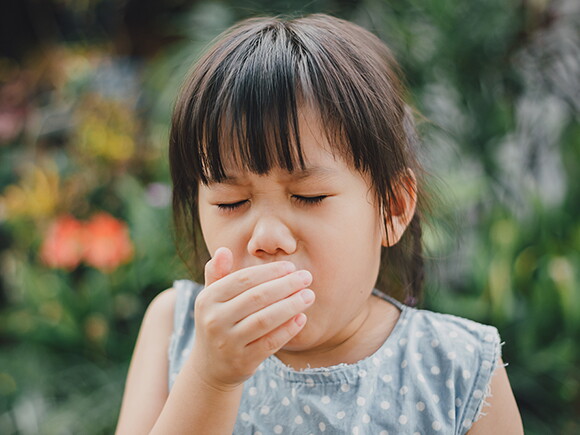Recently, Quezon City declared a pertussis outbreak, raising concerns for parents and caregivers across Metro Manila. Pertussis, also known as whooping cough, is a highly contagious respiratory illness that can be especially dangerous for young infants.
What is Pertussis?
Pertussis is a bacterial infection that affects the respiratory system. It's characterized by severe coughing spells that can end with a high-pitched whooping sound. While pertussis can affect people of all ages, it's most dangerous for infants who haven't completed their vaccinations.
How do I know if a child has Pertussis?
In the early stages, pertussis symptoms resemble a common cold, including:
- Runny nose
- Low-grade fever
- Mild cough
As the infection progresses, the cough worsens and becomes:
- Hacking and uncontrollable
- Followed by a whooping sound when inhaling.
How is Pertussis Spread?
Pertussis is highly contagious and spreads easily through coughing and sneezing. Infected droplets can travel through the air and be inhaled by others. Sharing utensils or close contact with an infected person can also spread the disease.
How do we prevent Pertussis?
- Vaccination is the most effective way to prevent pertussis. The recommended childhood immunization schedule includes the DTaP vaccine, which protects against diphtheria, tetanus, and pertussis.
- Minimize close contact with anyone exhibiting cold or cough symptoms.
- Practice good hygiene: frequent handwashing, covering coughs and sneezes.
- Be aware that even adults can contract pertussis and unknowingly spread it to
infants. Encourage anyone around your child to get vaccinated if they haven't already.
What will I do if I suspect my child having pertussis?
If your child exhibits symptoms of pertussis, consult a doctor immediately. Early diagnosis and treatment with antibiotics can prevent the spread of the infection and minimize complications.
By working together, parents, caregivers, and healthcare professionals can help prevent the spread of pertussis and protect children from this serious illness. Remember, vaccination is the key to safeguarding your child's health.
Sources:
Department of Health (DOH): https://doh.gov.ph/ Philippine Pediatric Society (PPS): https://pps.org.ph/
World Health Organization (WHO): https://www.who.int/teams/health-product-policy-and- standards/standards-and-specifications/vaccines-quality/pertussis










